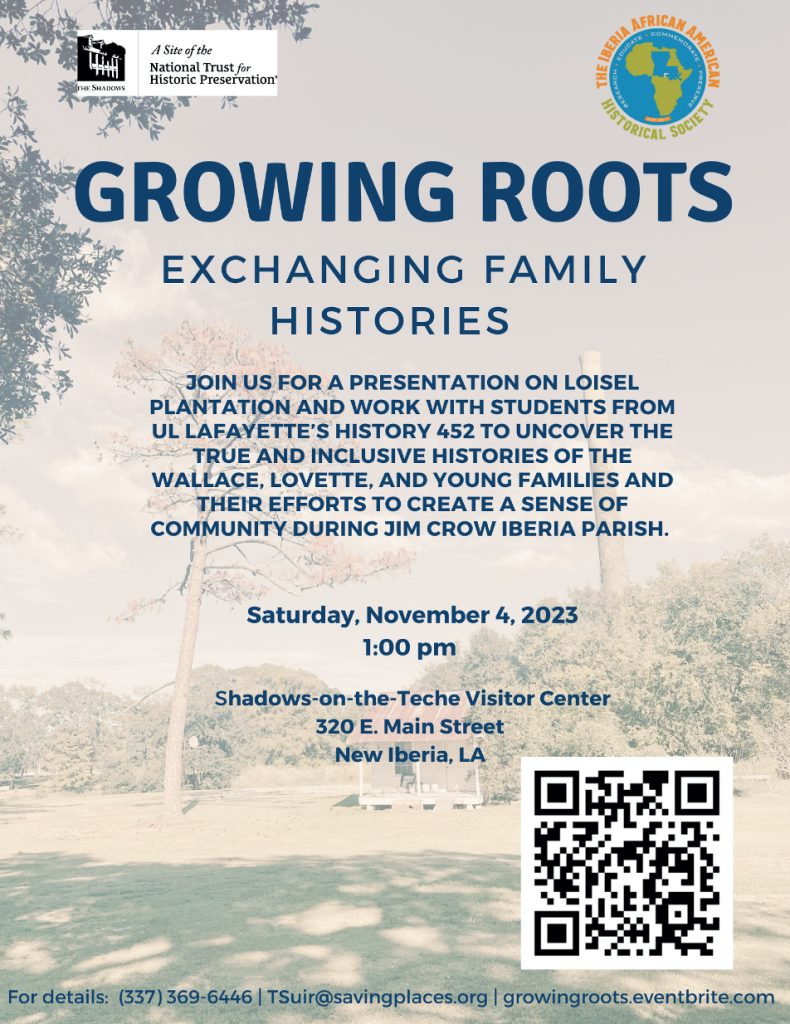As you may know, over the past two years Drs. Ian Beamish and Cheylon Woods have been co-teaching the University of Louisiana Lafayette Public History Seminars 451 and 452, in partnership with IAAHS.
(HIST 451: the systematic examination of archival administration, museum management, historical editing, oral history, historic site management and preservation.)
In 2022, after talks with Dr. Phebe Hayes, the instructors made the decision to begin by focusing on specific Black Civil War Veterans in Iberia Parish utilizing the IAAHS archives as core material.
As HIST 451 proceeded into a second semester, the students broadened their research to include tracing Black family histories within Iberia Parish, pre-civil war into the 20th century – information evolving from that first semester.
During HIST 451, the class made several well-attended interim reports, encouraging attendee participation; stories and additional family histories were shared by the audience. In April 2023 the students finalized their project with a major IAAHS event.
All this research work was unique and specific to the Iberia Parish African American community. During this period IAAHS opened the Center for Research and Learning and launched the public online digital archive Silent No More.
NOW WE PRESENT HIST 452:

To the New Iberia community and IAAHS members, Prof. Beamish and his ULL class present their
HIST 452 research as the final offering in this series.
(HIST 452: examining the role of historical methodology in interpreting history in public frameworks, including museums, historic preservation, archives, and communities.)
Quoting the invitation written by Ms. Suir of the IAAHS Center for Research and Learning:
“Join us for a presentation on Loisel plantation and work with students… to uncover the true and inclusive histories of the Wallace, Lovette and Young families…”
Saturday’s event will include special local-resident speakers and ANY AMOUNT of audience input or participation. Come prepared to enjoy this (and connect your family history to the research). There will be food.
 Iberia African American Historical Society "Celebrating the True and Inclusive History of Iberia Parish"
Iberia African American Historical Society "Celebrating the True and Inclusive History of Iberia Parish"